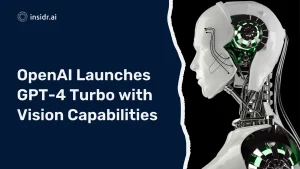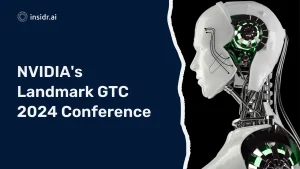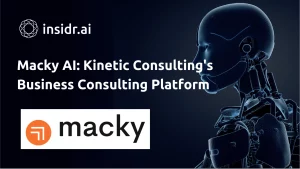
As artificial intelligence (AI) technologies continue to advance, their impact on the job market is a topic of great interest and concern.
Among the latest breakthroughs in AI is ChatGPT, a language model developed by OpenAI that can generate human-like text in response to various prompts.
While ChatGPT has many potential applications, it also poses challenges and opportunities for different job sectors.
In this article, we will analyze the jobs most exposed to ChatGPT and their potential futures.
👉 Looking for the best AI Tools? Find and compare AI Tools here:
What is ChatGPT?
ChatGPT is a natural language processing (NLP) model that uses deep learning techniques to generate human-like responses to textual prompts.
It was trained on a massive dataset of internet text, and has achieved state-of-the-art performance on several benchmarks.
ChatGPT can be used for a variety of tasks, such as answering questions, completing sentences, generating stories, and even writing code.
Its versatility and fluency have attracted attention from researchers, developers, and users around the world.
The Jobs Most Exposed to ChatGPT
While ChatGPT can be used to augment or automate many types of jobs, some jobs are more vulnerable to disruption than others.
Based on our analysis of various factors, such as the nature of the work, the skills required, and the potential for substitution, we have identified the following jobs as most exposed to ChatGPT:
1. Content Writers
Content writing is a highly competitive and rapidly evolving field that relies on creativity, research, and communication skills.
Content writers produce a wide range of materials, such as blog posts, articles, social media updates, product descriptions, and more.
With the advent of ChatGPT, some aspects of content writing can be done faster and cheaper, such as generating headlines, summaries, or outlines.
However, ChatGPT still lacks the domain-specific knowledge, voice, and perspective that human writers can provide.
Moreover, ChatGPT-generated content may not always meet the quality standards or preferences of the target audience.
2. Customer Service Representatives
Customer service is a critical aspect of many businesses that involves handling inquiries, complaints, and feedback from customers.
Customer service representatives (CSRs) need to be empathetic, patient, and knowledgeable about the products or services they support.
ChatGPT can assist CSRs by providing pre-written responses to common queries or routing customers to the right department.
However, ChatGPT may not be able to handle complex or sensitive issues that require human judgment and discretion.
Moreover, ChatGPT-generated responses may not always match the tone or style of the company’s brand or culture.
3. Translators and Interpreters
Translation and interpretation are vital skills in a globalized and diverse world that involve converting one language to another in real-time or offline.
Translators and interpreters need to have a deep understanding of the source and target languages, cultures, and contexts.
ChatGPT can facilitate some aspects of translation and interpretation, such as generating draft translations or interpreting simple phrases.
However, ChatGPT still struggles with ambiguity, idiomatic expressions, and cultural nuances that human translators and interpreters can handle.
Moreover, ChatGPT-generated translations or interpretations may not always convey the intended meaning or convey it accurately.
Looking for translator jobs? Explore Jooble.
4. Data Analysts and Scientists
Data analysis and science are rapidly growing fields that require skills in statistics, programming, and machine learning.
Data analysts and scientists extract insights and patterns from complex datasets and communicate their findings to stakeholders.
ChatGPT can aid data analysts and scientists by generating reports, visualizations, or summaries based on given data.
However, ChatGPT still lacks the domain-specific expertise, creativity, and critical thinking that human analysts and scientists can offer.
Moreover, ChatGPT-generated reports or summaries may not always capture the nuances or significance of the data or the context in which it was collected.
4. Data Analysts and Scientists
Data analysis and science are rapidly growing fields that require skills in statistics, programming, and machine learning.
Data analysts and scientists extract insights and patterns from complex datasets and communicate their findings to stakeholders.
ChatGPT can aid data analysts and scientists by generating reports, visualizations, or summaries based on given data.
However, ChatGPT still lacks the domain-specific expertise, creativity, and critical thinking that human analysts and scientists can offer.
Moreover, ChatGPT-generated reports or summaries may not always capture the nuances or significance of the data or the context in which it was collected.
Opportunities and Challenges for Jobs Exposed to ChatGPT
While the impact of ChatGPT on different jobs varies, there are some common opportunities and challenges that arise from its use.
Some of the opportunities include:
- Increased efficiency and productivity: ChatGPT can help automate or accelerate some routine or time-consuming tasks, allowing human workers to focus on more creative or complex work.
- Better scalability and consistency: ChatGPT can generate large volumes of text or responses quickly and consistently, reducing the need for manual editing or quality control.
- New ways of collaboration and communication: ChatGPT can enable new forms of human-machine or machine-machine interaction, such as chatbots, virtual assistants, or augmented writing.
However, there are also some challenges that need to be addressed, such as:
- Ethical and legal concerns: ChatGPT-generated content or responses may raise ethical or legal issues related to privacy, bias, copyright, or liability, especially when used in sensitive or regulated domains.
- Human-machine complementarity and competition: ChatGPT may replace or complement human workers, depending on the type of work and the level of AI sophistication. This may lead to job displacement, skills gaps, or social inequalities.
- User trust and acceptance: ChatGPT-generated content or responses may not always be perceived as credible, trustworthy, or desirable by the target audience, leading to user distrust or resistance.
Conclusion
In conclusion, the impact of ChatGPT on jobs is a complex and evolving topic that requires careful consideration and analysis.
While ChatGPT can bring many benefits to different job sectors, it also poses challenges and risks that need to be addressed.
Therefore, it is essential to have a holistic and informed approach to AI adoption, that takes into account the social, ethical, and economic dimensions of the technology.
By doing so, we can ensure that AI technologies such as ChatGPT can enhance human capabilities, rather than replace them.
Stay up to date with AI
At Insidr.ai, we constantly search the market for AI News and new AI tools.
We collect the best AI tools available on the market, as well as AI news. You can everything for free on the website.
Sign up the the newsletter to stay up to date with new tools and AI news. We will also send you a full list of 200+ of the best AI tools; Click here.







